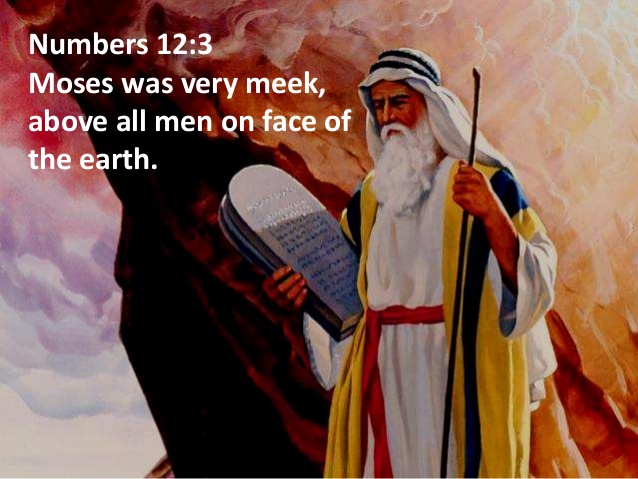Click here to return to Blog Post Intro

THE FIRST BEATITUDE
“Blessed are the poor in spirit: for theirs is the Kingdom of heaven” (Matthew 5:3).
The first Beatitude is foundational. It is the work of the Spirit emptying the heart of self, that Christ may fill it. It is a sense of need and destitution.
The one who is poor in spirit is nothing in his own eyes, and feels that his proper place is in the dust before God. Christ began not by pronouncing maledictions on the wicked, but by pronouncing benedictions on His people.
What is poverty of spirit? It is the opposite of that haughty, self-assertive, and self-sufficient disposition that the world so much admires and praises. To be poor in spirit is to realize that I have nothing, am nothing, and can do nothing, and have need of all things.
THE SECOND BEATITUDE
“Blessed are they that mourn, for they shall be comforted” (Matthew 5:4).
The mourning for which Christ promises divine comfort is a sorrowing over our sins with a godly sorrow. It is mourning over the felt destitution of our spiritual state, and over the iniquities that have separated us and God; mourning over the very morality in which we have boasted, and the self- righteousness in which we have trusted; sorrow for rebellion against God, and hostility to His will; and such mourning always goes side by side with conscious poverty of spirit.
The closer the Christian lives to God, the more he will mourn over all that dishonors Him.
THE THIRD BEATITUDE
“Blessed are the meek: for they shall inherit the earth” (Matthew 5:5).
Some regard the word meek as patience, a spirit of resignation; some as unselfishness, a spirit of self-abnegation; others as gentleness, a spirit of nonretaliation, bearing afflictions quietly.
Perhaps the best definition is humility. “Blessed are the meek,” that is, the humble, the lowly.
Moses was humble, lowly, and self-renouncing. Moses turned his back on worldly honors and earthly riches, deliberately choosing the life of a pilgrim rather than that of a courtier. He chose the wilderness in preference to the palace.
For the meek, there is poverty of spirit: a sense of insufficiency and nothingness. That is followed by mourning over one’s lost condition and sorrowing over the awfulness of one’s sins against God.
Meekness is an intrinsic aspect of the “fruit of the Spirit” that is produced through the Christian. It is that quality of spirit that is found in one who has been schooled to mildness by discipline and suffering and brought into sweet resignation to the will of God. It is that grace in the believer that causes him to bear patiently insults and injuries, that makes him ready to be instructed and admonished by the least eminent of saints, that leads him to esteem others more highly than himself (Philippians 2:3), and that teaches him to ascribe all that is good in himself to the sovereign grace of God.
Meekness of spirit leads to contentment of mind. The proud and restless do not “inherit the earth,” though they may own many acres of it. The humble Christian has far more enjoyment in a cottage than the wicked has in a palace. “Better is little with the fear of the Lord than great treasure and trouble therewith” (Proverbs 15:16).
THE FOURTH BEATITUDE
“Blessed are they which do hunger and thirst after righteousness. for they shall be filled” (Matthew 5:6).
In the first three Beatitudes we are called upon to witness the heart exercises of one who has been awakened by the Spirit of God. First, there is a sense of need, a realization of nothingness and emptiness. Second, there is a judging of self, a consciousness of guilt, and a sorrowing over one’s lost condition. Third, there is a cessation of seeking to justify oneself before God, an abandonment of all pretenses to personal merit, and a taking of one’s place in the dust before God. Here, in the fourth Beatitude, the eye of the soul is turned away from self toward God for a very special reason: there is a longing after a righteousness that one urgently needs but know that he or she does not possess.
God’s righteousness is synonymous with God’s salvation (see Isaiah 46:12-13; Isaiah 51:5; Isaiah 56:1; and Isaiah 61:10a).
Like the previous ones, this fourth Beatitude describes a twofold experience. It refers to the initial hungering and thirsting that occurs before a sinner turns to Christ by faith. But it also refers to the continual longing that is perpetuated in the heart of every saved sinner until his dying day.
THE FIFTH BEATITUDE
“Blessed are the merciful: for they shall obtain mercy” (Matthew 5:7).
In the first four Beatitudes, which have already been considered, a definite progression of spiritual awakening and transformation has been noted as one of the thrusts of our Lord’s teaching.
In the next four Beatitudes we come to the manifestation of positive good in the believer, the fruits of a new creation and the blessings of a transformed character.
According to our Lord’s teaching, mercy is an essential feature of that holy character to which God has inseparably connected the enjoyment of His own sovereign kindness. Having obtained mercy of the Lord, the saved sinner now exercises mercy.
What is mercifulness? It is a gracious disposition toward my fellow creatures and fellow Christians. It is that kindness and benevolence that feels the miseries of others. It is a spirit that regards with compassion the sufferings of the afflicted. It is that grace that causes one to deal leniently with an offender and to scorn the taking of revenge.
The Christian who is merciful in his dealings with others will receive merciful treatment at the hands of his fellows.
THE SIXTH BEATITUDE
“Blessed are the pure in heart: for they shall see God” (Matthew 5:8).
Purity of heart does not mean a sinless life. Check out the history of God’s saints: Noah got drunk; Abraham equivocated; Moses disobeyed God; Job cursed the day of his birth; Elijah fled in terror from Jezebel; and Peter denied Christ.
One of the most conclusive evidences that we do possess a pure heart is the discovery and consciousness of the remaining impurity that continues to plague our hearts.
The spiritual purity that God demands penetrates far beyond the mere outward renovations and reformations that comprise such a large part of the efforts now being put forth in Christendom! Much that we see around us is a hand religion—seeking salvation by works—or a head religion that rests satisfied with an orthodox creed. But God “looketh on the heart” (1 Samuel 16:7), that is, He looks upon the whole inner being, including the understanding, the affections, and the will.
What is purity? It is freedom from defilement and divided affections; it is sincerity, genuineness, and singleness of heart. As a quality of Christian character, we would define it as godly simplicity.
The pure in heart possess spiritual discernment, and with the eyes of their understanding they obtain clear views of the divine character and perceive the excellency of God’s attributes.
THE SEVENTH BEATITUDE
“Blessed are the peacemakers: for they shall be called the children of God” (Matthew 5:9).
The Lord Jesus does not say, “Blessed are the peacelovers,” or “Blessed are the peacekeepers,” but “Blessed are the peacemakers.”
This seventh Beatitude has to do more with conduct than character, though, of necessity, there must first be a peaceable spirit before there will be active efforts put forth to make peace.
Poverty of spirit is always accompanied by mourning, as is meekness or lowliness by hungering and thirsting after the righteousness of God. The grace of peacemaking supplements the six graces mentioned in the previous verses. Perhaps the fact that this is the seventh Beatitude indicates that it was our Lord’s intent to teach that it is this attribute that gives completeness or wholeness to Christian character.
THE EIGHTH BEATITUDE
“Blessed are they which are persecuted for righteousness’ sake: for theirs is the Kingdom of heaven. Blessed are ye, when men shall revile you, and persecute you, and shall say all manner of evil against you falsely, for My sake. Rejoice, and be exceeding glad: for great is your reward in heaven: for so persecuted they the prophets which were before you” (Matthew 5:10-12).
If Christians were content with doing justly and loving mercy, and would cease walking humbly with God (Micah 6:8), they might go through the world, not only in peace, but with applause; but he that will live godly in Christ Jesus shall suffer persecution (2 Timothy 3:12).
Matthew 5:10 serves as an appendix to the whole series, describing the experience that will surely be met with by those whose character Christ has described in the previous verses.
Jesus explains three sorts of suffering that His disciples should expect to endure in the line of duty:
- Reviling: verbal abuse
- Persecution, which is a proper rendering of a Greek word meaning “to pursue,” which means, in this case, “to harass, trouble, or molest” (either physically or verbally)
- Defamation of character: “Blessed are ye, when men… shall say all manner of evil against you falsely ….”
CONCLUSION
The Beatitudes describe the character and conduct of a Christian:
- “Blessed are the poor in spirit.” How marvelous it is to see how the Scriptures speak of Him who was rich becoming poor for our sakes, that we through His poverty might be rich (2 Corinthians 8:9). Great indeed was the poverty into which Jesus Christ entered the world. Born of parents who were poor in this world’s goods, He commenced His earthly life in a manger. During His youth and early manhood, He toiled at the carpenter’s bench.
- “Blessed are they that mourn.” Christ was indeed the chief mourner. Old Testament prophecy contemplated Him as “a Man of Sorrows, and acquainted with grief” (Isaiah 53:3).
- “Blessed are the meek.” A score of examples might be drawn from the Gospels that illustrate the lovely lowliness of the incarnate Lord of glory. Jesus chose not the wise, the learned, the great, or the noble. At least four of them were fishermen, and one was in the employment of the Roman government as a despised tax collector. Witness His lowliness in the company that He kept. He sought not the rich and renowned, but was “a friend of publicans and sinners” (Matthew 11:19).
- “Blessed are they which do hunger and thirst after righteousness.” What a summary this is of the inner life of the man Christ Jesus!
- “Blessed are the merciful.” In Christ we see mercy personified. It was mercy to poor lost sinners that caused the Son of God to exchange the glory of heaven for the shame of earth. It was wondrous and matchless mercy that took Him to the cross, there to be made a curse for His people. So, it is “not by works of righteousness which we have done, but according to His mercy [that] He saved us” (Titus 3:5).
- “Blessed are the pure in heart.” This, too, was perfectly exemplified in Christ. He was the “Lamb without blemish and without spot” (1 Peter 1:19).
- “Blessed are the peacemakers.” Supremely true is this of our blessed Savior. He is the One who “made peace through the blood of His cross” (Colossians 1:20).
- “Blessed are they which are persecuted for righteousness’ sake.”
May the Spirit of God occupy us more and more with Him (Psalm 45:2), as we shoot for the stars!



